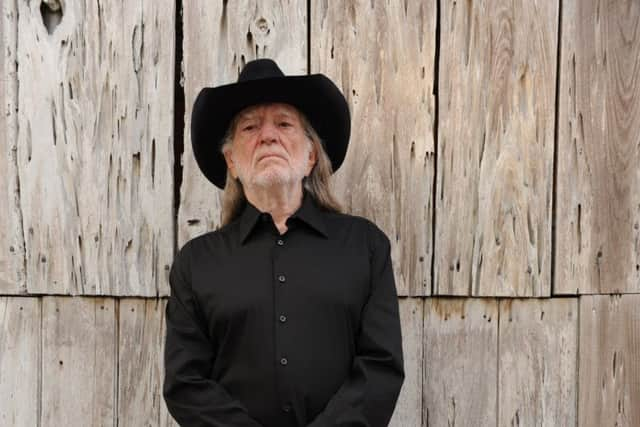Album reviews: Paul Weller | Jungle | Willie Nelson


Paul Weller: True Meanings (Parlophone) ****
Jungle: For Ever (XL Recordings) ****
Willie Nelson: My Way (Legacy) ***


Earlier this year, Paul Weller celebrated his 60th birthday with the release of a delicate new song Aspects, the archetypal angry young man now recast as soul-searching elder statesman. Aspects is a fine taster for his 14th solo album, on which Weller submits entirely to the pastoral, psychedelic side of his output.
True Meanings is a gentle, bittersweet collection, characterised by lovely, rich melodies, acoustic instrumentation, tremulous string arrangements which are key to the sound but never overpowering, and Weller in mellow Modfather mode, exploring his soft, even vulnerable crooner tones.
Advertisement
Hide AdWhere he might previously have collaborated with swaggering young bucks made in his own image, Weller calls upon the service of a number of his elders and betters, including Rod Argent of Weller faves The Zombies and folk royalty Martin Carthy and bassist Danny Thompson, as well as turning to a couple of gentle young souls, Conor O’Brien of Villagers and Orcadian composer Erland Cooper, for lyrical input.
The latter provides the wistful tribute of Bowie but there is great warmth alongside the melancholy throughout the album. Weller sets out to accentuate the positive on What Would He Say?, trying to stay strong for his kids in the face of what he describes as “dark forces”. “In a world full of pain, why add to it?” he asks as a Burt Bacharach-style trumpet sounds its mournful fanfare.


Weller dips into other 60s signatures with the jazzy waltz Old Castles, which trips along like one of the more lighthearted gems in the Dusty Springfield catalogue, and the old-fashioned romantic sentimentality of Gravity and May Love Travel With You. This is hardly the music of seduction but Weller gives it a whirl on Come Along, which sounds a muted bum note on an otherwise elegantly stylised and sincerely wrought album.
There is also a featherlight touch and a careful marshalling of mood on the new album by Jungle, who rightly turned heads a few years back with one of the most distinctive and refreshing sounds to emerge from the all-too-homogenous London R&B scene. Since then, mainmen Tom McFarland and Josh Lloyd-Watson have temporarily dipped their toes in the Los Angeles swimming pool.
Their signature blend of unison vocals, soaring falsettos and mellow club culture is enhanced by a more organic old soul sound on For Ever, another beautifully produced record which charts the hope and optimism of migration on Heavy, California as well as the conflicted wrench of saying goodbye to the American dream on the blissed-out House In LA.
Give Over is a great showcase for their emphasis on voice, with its atmospheric pitchshifted vocals and layers of soothing backing cooing, while Happy Man sounds like a remix of a classic soul cut, its timeless warning against the finite pleasures of consumption shot through with a jaded melancholy.
Advertisement
Hide AdThe wonderful Willie Nelson is no (red-headed) stranger to a crossover collection, having kickstarted the trend for revisiting the American songbook with his classic Stardust album back in 1978. On My Way, he follows Bob Dylan down the road of grizzled Sinatra standards.
In some respects, the idiosyncratic Nelson can only ever do it his way, and he certainly knows how to lay back into the material with his unique phrasing. The arrangements here amount to fairly standard swing band fare, though there is a welcome hint of western swing on What Is This Thing Called Love, a duet with the similarly horizontal Norah Jones.
Advertisement
Hide AdA couple of numbers are phoned in but who could boast greater gravitas in delivering the life lessons of It Was A Very Good Year? Nelson treats My Way itself with the sobriety it deserves, however not even he can add anything new to this over-familiar anthem.
CLASSICAL
Janáček: Glagolitic Mass, Sinfonietta, Taras Bulba & The Fiddler’s Child (Decca) *****
Over two excellent CDs, this posthumous release of recordings by the late Jirí Belohlávek and the Czech Philharmonic presents some of Janáček’s most striking orchestral works in blazing, life-affirming light. The key work here is his Glagolitic Mass – it was Belohlávek’s first and only recording of it with this orchestra – featuring the Prague Philharmonic Choir and soloists Hibla Gerzmava, Veronika Hajnova, Stuart Neill and Jan Martiník, with Ales Barta on organ. There is a gripping rawness, both in the radiant vocal performances and the edgy, distinctive orchestral playing. But Belohlávek also plays on its expansiveness, moments of tenderness and overriding sophistication. There are steely performances, too, of the sun-ripe Sinfonietta, the macabre Fiddler’s Child and the high octane Taras Bulba.
Ken Walton
JAZZ
Dexter Gordon Quartet: Tokyo 1975 (Elemental Music) ****
Raising the roof of Tokyo’s Yubin Chokin Hall, the late Dexter Gordon, a giant in every sense, combines commanding directness on tenor sax with witty melodic inventiveness in the company of pianist Kenny Drew, double-bassist Niels-Henning Ørsted Pedersen and drummer Albert “Tootie” Heath. These hitherto unreleased recordings see Gordon in full flight in his own Fried Bananas, the others keeping him athletic company. He takes introductory vocals in a strutting treatment of the Eckstine-Hines hit Jelly, Jelly, Jelly, while two numbers recorded elsewhere with different line-ups include Thelonious Monk’s Rhythm-a-Ning. It’s during a Tokyo moment, however, halfway through a tenderly handled Misty, when Gordon breaks off and Drew’s piano cascades on over shushing brushwork, that we’re struck by the sheer glamour – in the word’s old, magical sense – of what is going on. n
Jim Gilchrist